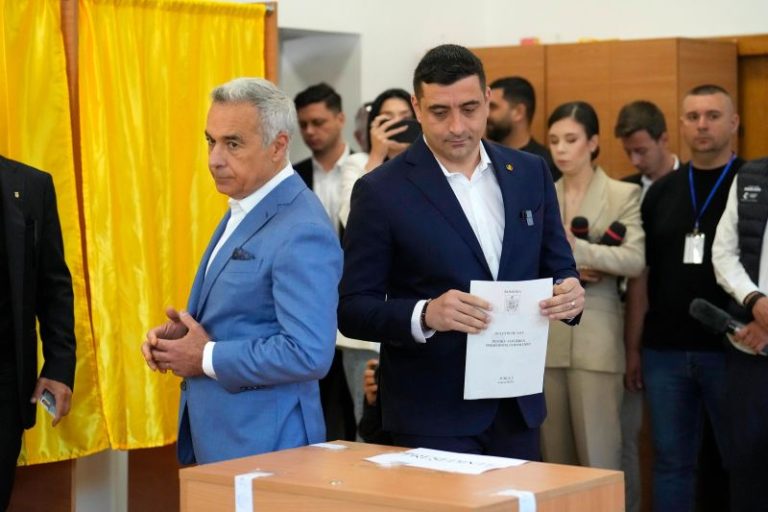In a dilapidated home on the outskirts of Havana, Heidy Sánchez shows off photos from a past life.
She flips though images on her iPhone of visits to Sea World with her husband and 17-month-old daughter and the couple dressing up in Santa attire for Christmas.
“I don’t know if it was the American dream,” Sánchez said. “But it was my dream, my family.”
That dream and family were ripped away in late April when Sánchez was deported from Florida to her native Cuba, even though both her daughter and husband are US citizens.
Sánchez crossed into the US from Mexico in 2019 when the first Trump administration required asylum seekers to wait on the other side of the border for immigration appointments as part of the “Remain in Mexico” program.
But Claudia said threats from cartels, which often target Cubans for kidnappings and extortion, prevented her from making her appointment. When she finally did cross the border again she told immigration agents her life was at risk in Mexico and she was allowed to stay. After nine months in immigration custody, she was released and able to join her family in Tampa.
There she studied to become a nursing assistant, met her husband, a naturalized US citizen also from Cuba, and after several in vitro fertilization (IVF) treatments, finally realized her dream of becoming a mom.
Sánchez maintains she hardly fits the stereotype of the dangerous undocumented immigrants that the Trump administration says it is taking off US streets.
“I never had so much as a ticket,” she said.
Still, with the immigration hearing she had missed in 2019 and the changing political fortunes for Cuban immigrants who previously had residency in the US all but guaranteed, Sánchez’s time in the US was running out.
In April, Sánchez was contacted by Immigration and Customs Enforcement (ICE) that an appointment she had with officers was being moved up to the next day. Still, her attorneys told her it was likely a routine check-in. Instead, when she showed up for the appointment with her daughter Kailyn and an attorney, ICE agents told her she was being taken into custody and to hand over her daughter to relatives.
“Call the father to come get her, you are staying here,” Sánchez said the agents informed her.
In a statement, the Department of Homeland Security denied Sánchez and her attorney’s accounts that she was not given the option to take her daughter with her.
“We take our responsibility to protect children seriously and will continue to work with federal law enforcement to ensure that children are safe and protected,” DHS Assistant Secretary Tricia McLaughlin said.
“The Trump administration is giving parents in this country illegally the opportunity to self deport and take control of their departure process with the potential ability to return the legal, right way and come back to live the American dream,” the statement continued.
Sánchez’s attorney said they tried to stop her deportation by arguing that her removal would hurt her daughter, who she was breast feeding and has suffered seizures. But two days later, as Sánchez’s attorneys were requesting a hearing in the case, she was already in the air on a deportation flight to Havana.
Cañizares said the manner in which Sánchez was repeatedly moved from different ICE facilities – making it impossible to see her client – before her fast-track deportation was “shady.”
Now any possible legal avenue for Sánchez to return to the US could likely take years, Cañizares said. Sánchez and her family are hoping that backlash to her story could lead to enough public support – particularly among the Cuban-American community that supported Trump in the 2024 presidential race – to enable a reunification.
“The Trump administration is ripping families apart for political games,” US Rep. Kathy Castor (D-FL) posted on X along with a photo of her meeting Sánchez’s husband Carlos.
“We are pursuing every action to reunite this family and unfortunately are still waiting for a response from the White House to explain their illegal actions,” she posted.
As controversy swirls around her case, Sánchez is struggling to adapt to the dire situation in Cuba where daily power outages and increasing scarcities have made life even tougher on the island than when she left six years ago.
She lives in a house with relatives where parts of the ceiling are caving in and electricity is cut for hours each day. The cell reception from the one state-run provider is so spotty in the area she either has to walk several blocks away or scale up to the roof of the house to call her husband and daughter.
Her family is only a 90-minute flight away but for the immediate future remains agonizingly out of reach.
“I have to pump milk which should feed my daughter and throw it in the trash,” Sánchez said. “That hurts me so much to do.”
She worries constantly about her young daughter who has trouble sleeping and has suffered convulsions again following her mother’s deportation.
“Her father puts recordings of me singing to her so that she can sleep,” Sánchez said. “I am suffering but I know my girl is suffering more.”
This post appeared first on cnn.com










